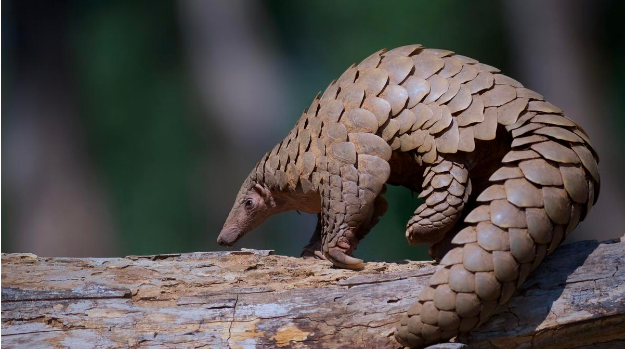Context:
On the eve of World Pangolin Day observed on February 18, a not-for-profit organization working on the international trade of animals and plants has brought out a fact sheet reporting that 1,203 pangolins have been found in illegal wildlife trade in India from 2018 to 2022.

Image Source: The Hindu
Findings of the publication, titled ‘India’s Pangolins Buried in Illegal Wildlife Trade’
- An analysis of illegal pangolin trade in India by TRAFFIC in 2018 reported poaching of 6,000 pangolins between 2009 and 2017.
- India reports a significant number of pangolin trafficking incidents reflected by seizures across the country.
- They are poached mainly for international markets in China and southeast Asia for their scales, which are used as an ingredient in traditional medicines.
- Odisha reported the maximum number of incidents, with 154 Pangolins in 74 seizures followed by Maharashtra with 135 Pangolins.
About Pangolins:
- The Pangolin is the most trafficked animal in the world.
- Pangolins are the only mammals wholly-covered in scales and they use those scales to protect themselves from predators in the wild.
- Pangolins eat ants, termites and larvae and are often known as the scaly anteater.
- Eight species of pangolins are found on two continents namely Asia and Africa. They range from Vulnerable to Critically Endangered.
- Indian pangolin (Manis crassicaudata) and Chinese pangolin (Manis pentadactyla) are found in India.
- Protection:
-
- It is listed under the Schedule I Part I of the Wild Life (Protection) Act, 1972.
- It is listed in Appendix I of CITES in accordance with the International Union for the Conservation of Nature’s Red List.
- Indian pangolin – Endangered; Chinese pangolin – Critically Endangered.
| Additional Information:
About TRAFFIC
- TRAFFIC is a leading non-governmental organisation working globally on trade in wild animals and plants in the context of both biodiversity conservation and sustainable development.
- TRAFFIC is a joint programme of the World Wide Fund for Nature (WWF) and IUCN.
- It was founded in 1976, with headquarters now located in Cambridge, United Kingdom.
- TRAFFIC’s mission is to ensure that trade in wild plants and animals is not a threat to the conservation of nature.
- It investigates and analyses wildlife trade trends, patterns, impacts and drivers to provide the leading knowledge base on trade in wild animals and plants.
|
Source: The Hindu, traffic.org
![]() 18 Feb 2023
18 Feb 2023
